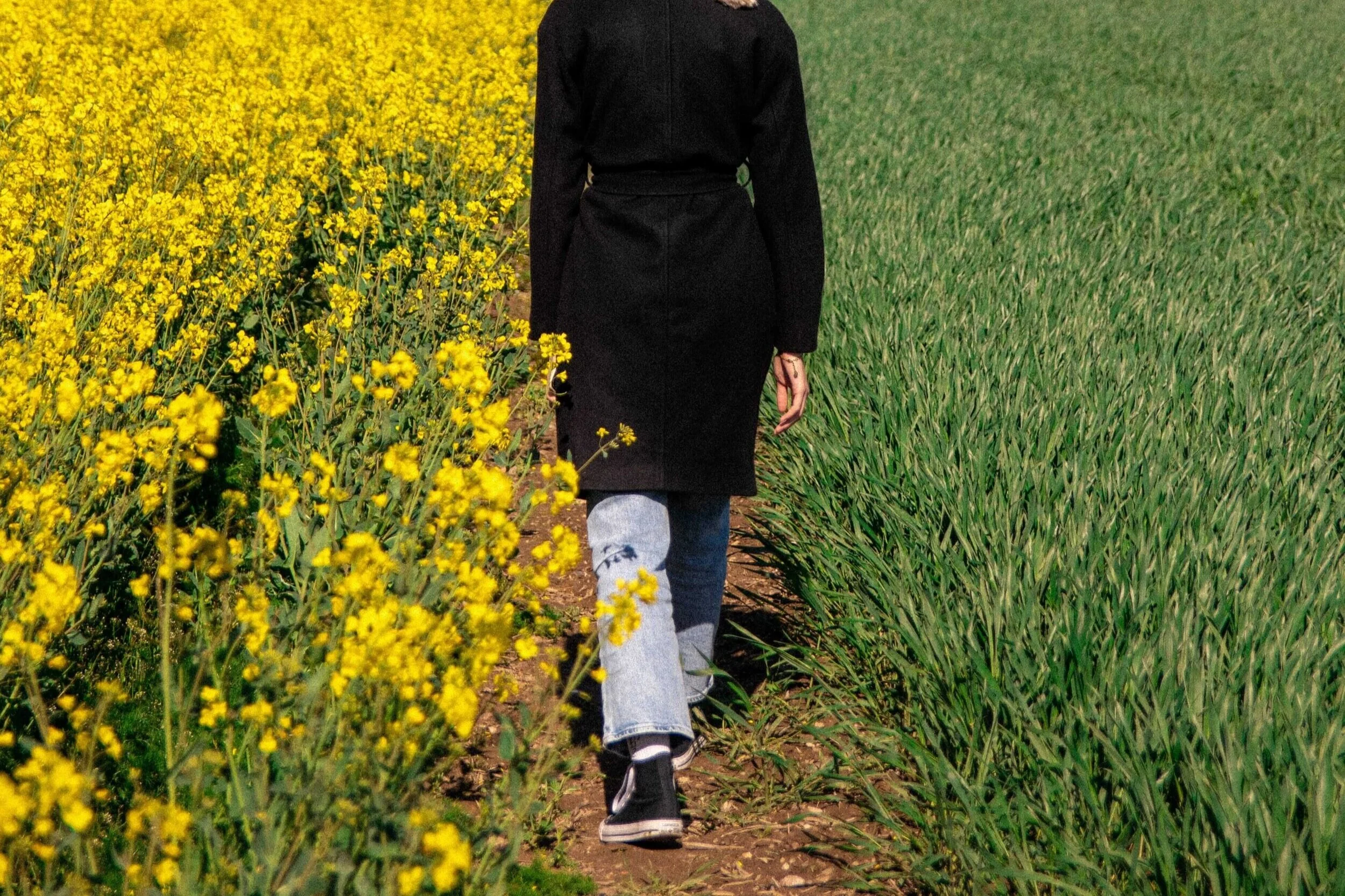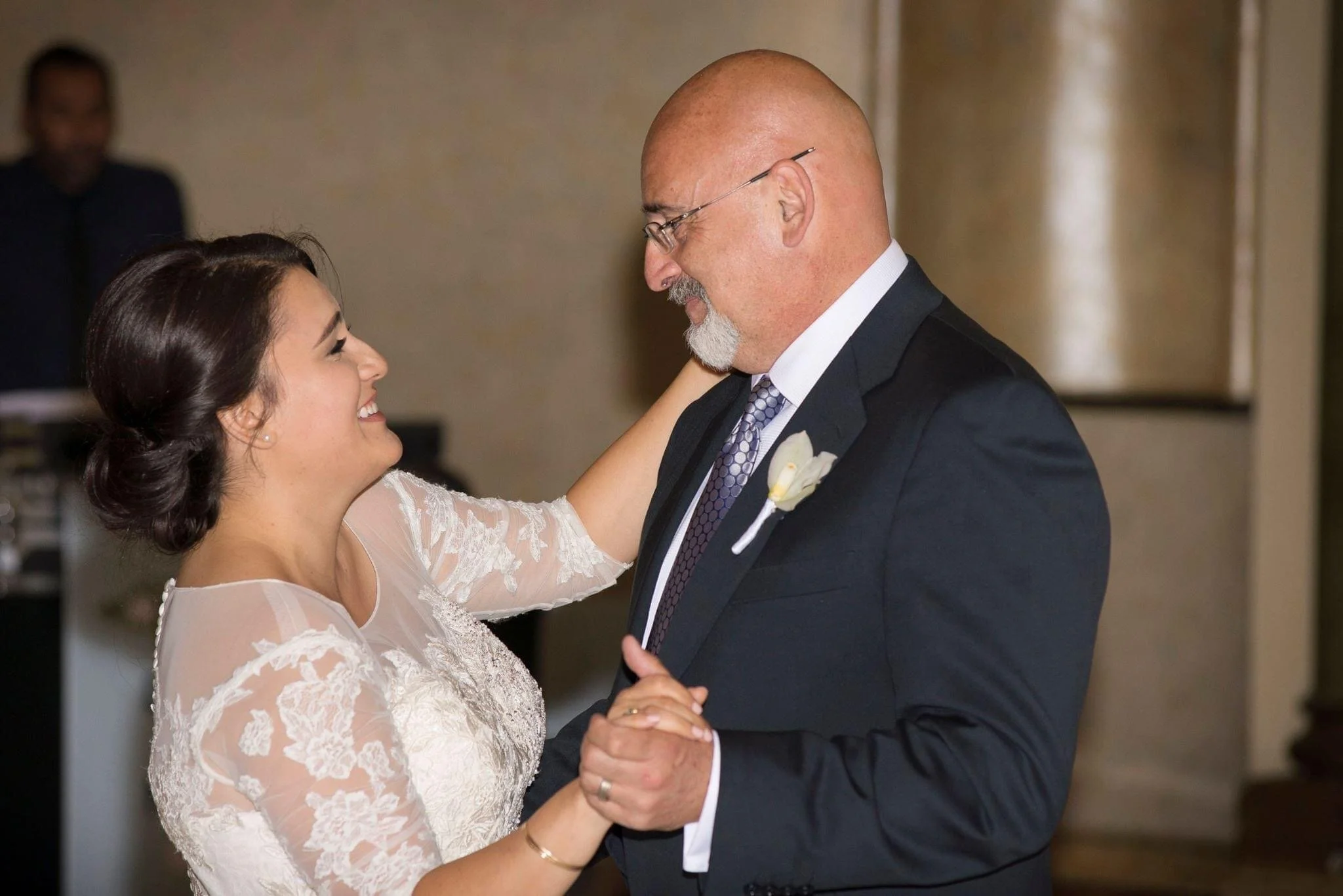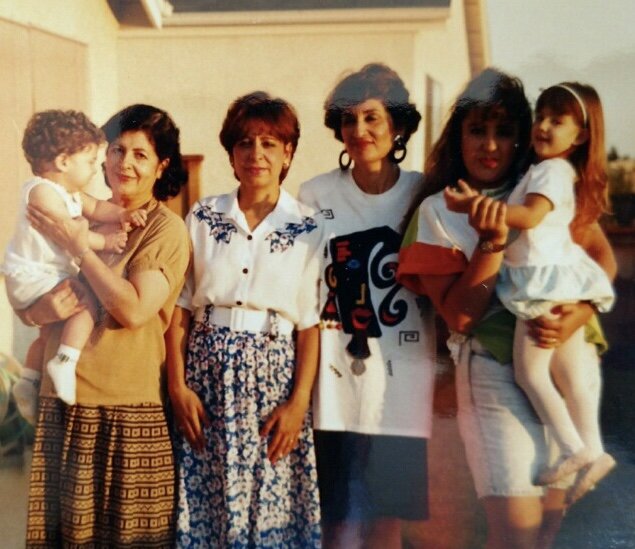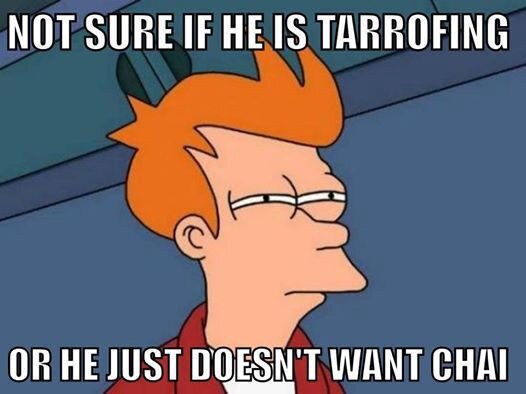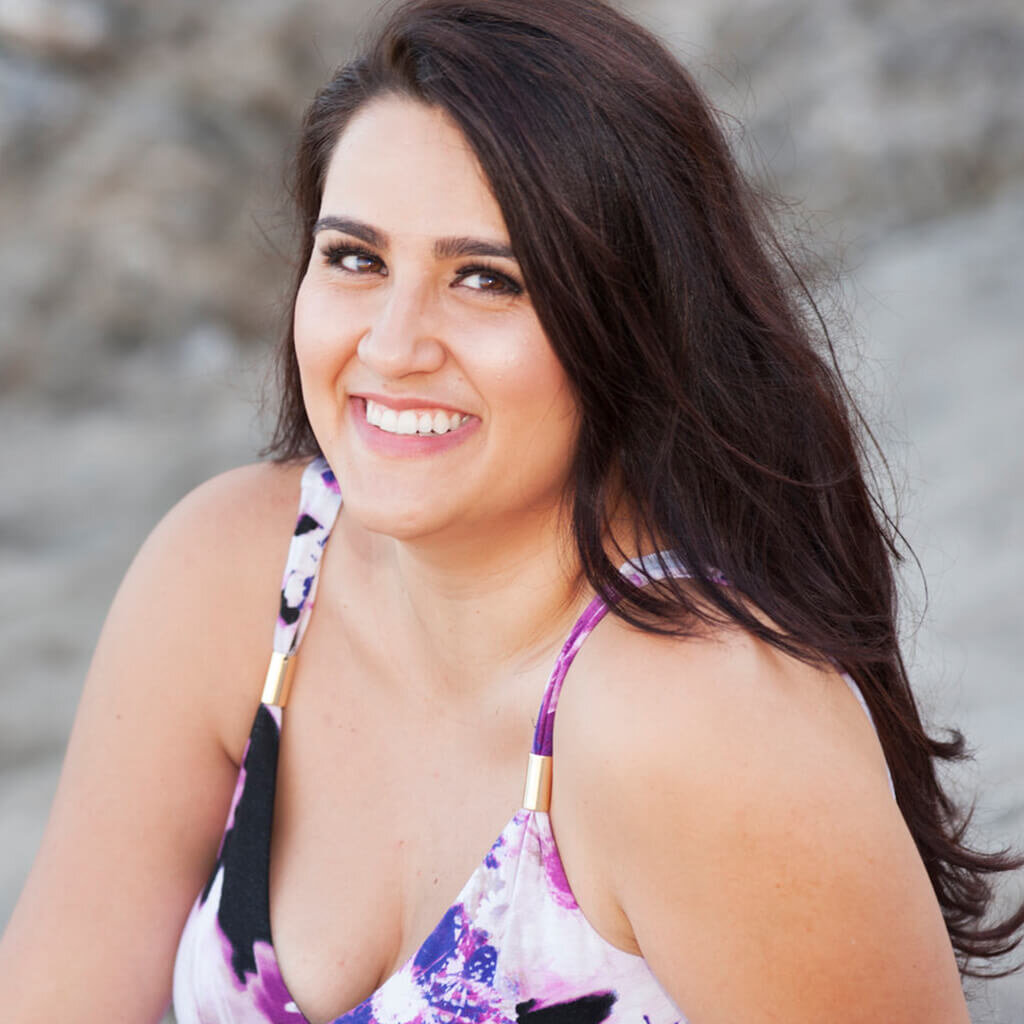I’m Persian American. Why Don't I Feel Like I'm Fully Either One?
by Nicole Pirshafiey
I’m going to let you in on a secret.
A couple of secrets, actually, but we’ll get to those.
The main one is right there in the title, so I won’t beat around that bush; I’m Persian American, and I’ve never been able to reconcile how those two identities can co-exist. It might seem dramatic, but in my experience, being fully Persian feels impossible in America, and being what people think is American feels impossible when you’re Persian.
Don’t get me wrong. There are actually many, many delightfully unexpected overlaps of American and Persian culture. They aren’t as completely incompatible as they’re often presented. Take, for example, our shared love of family and community and food, especially outdoors. No one loves a picnic more than a Persian family! Or the loud and raucous laughter that embarrasses teenagers and fills dinner tables and wedding receptions across the country. Not to mention our entrepreneurial spirit, ever in pursuit of the finer things and a comfortable life (not every Persian American drives a Benz or a Beemer, but I guarantee that someone in their family does). Hell, even our love of grilling. I hear all this nonsense about Texas versus Kansas City barbecue. To that, I say—meet me in Westwood aka Tehran-geles for chelo kabab and let’s settle this foolishness once and for all.
But as beloved Iranian American comedian Maz Jobrani said in this interview about his identity as a Persian immigrant, “I never felt American enough, and I never felt Iranian enough.” I don’t know of a single Persian American who doesn’t feel that way.
Despite all the overlap, all the cultural similarities and how well Persians can “assimilate” into American culture, we are always caught between two worlds. And to further complicate matters, even though we may feel like we should belong in the “Other” box on forms, we are, technically, just as white as any Karen or Kevin terrorizing a Trader Joe’s with their anti-mask tantrums.
In a series of extremely not-scientific social media polls, I asked if people of Middle Eastern descent should be considered people of color. Overwhelmingly, the answers were either “Yes!” or “Not really, but they’re not white either!” But technically, Persians are white. Extremely white. Perhaps even the origin of white. Did you know that the terms “Caucasian” and “Aryan” actually have their origins in the Middle East? It’s true. The Caucus Mountains run from the Caspian Sea to the Black Sea. The term Aryan, now heavy with cultural subtext, was originally the ethnonym for Iranian people.
The 2020 Census, in line with all other U.S. government forms, specifically directs Persian people to select “White.”
This is….conflicting.
While our status as people of color is absolutely up for debate, Maz said it best. We never feel American enough. Most of us never feel like white people, and my family members certainly aren’t treated like white people, especially in a post-9/11 America. We are in the murky space of benefitting from white systems, while simultaneously being othered.
Like every Persian American I know, I am constantly asked “where is your family from?” or “so...what are you?” when I meet someone new.
I’ve certainly never been denied service or followed in a store, but I do get pulled for extra security when I fly.
I’ve never been discriminated against because of the color of my skin, but I have been told that I’m “too pretty to be one of those Middle Easterners.”
I’ve never been assaulted for how I look, but I have had classmates refer to my dad as (and I hate to even type this) a “sandn***er” during a workshop on multiculturalism.
In elementary school, one of my best friends casually asked me if my dad was a “wetback” because she thought that was a synonym for an immigrant—based, of course, on what she overheard at home.
By turns, this either enrages me (I am just as American as you!) or it exhausts me (awesome, wow, love being asked what my ‘nationality’ is by my surgeon before he operates on me) or it humbles me (I could have it so, so, so much worse and I have so much privilege that this is all I face).
Mostly, though, it saddens me. Deeply.
Another key similarity between Americans and Persians? Persian Americans love this country.
Even though our democracy may be in tatters, you will never meet a more passionate patriot than my dad, who is endlessly proud of his adopted country and all the progressive rights and freedoms we have. When Trump was elected and so many people were talking about moving to Canada, this is what he texted me:
And it depresses me on an existential level, all the way down to my bones, that this beautifully generous and hospitable community is simultaneously teased with the mirage of belonging while so quickly being rejected.
If you’re considered white, but you’re never American enough, and you’re not considered a person of color either...what are you?
Here’s what I think we are.
Despite Western representations of Iran, everything I know about Persian people is warm and welcoming, soft and generous. We live by an ancient code of “good thoughts, good words, good deeds.” There are no sharp edges or bitter tones. The fragrances are deep and rich, the food bountiful and aromatic. Even the accents, as they give voice to deep, throaty English, feel like an embrace. The vowels are rounded and tonal, the laughter like a melody.
There was a moment last year, during the red carpet premiere of Disney’s Aladdin, that all this washed over me and truly broke me down. Not out of anger, or sadness, or exhaustion. But out of joy, and comfort, and a sense of inclusion I never realized I was missing. Navid Negahban, the actor who portrayed the Sultan in the live-action remake, was being interviewed. I beamed the entire time he spoke, luxuriating in the velvety thickness of his accent, which reminded me of my dad. The warm brown eyes, the sharp distinct brows. And then he spoke in Farsi to his community back in Iran, sending them his love and wishing they could be there with him.
It hit me, suddenly and without warning, that I’d never in my American life heard an actor speak on a red carpet in the language of my family. The language of the first words I ever spoke.
In that moment, I realized how the “accepted default” American experience doesn’t apply, would never apply, to my family. Not in how we sound, or how we look, or even how we treat each other.
Case in point, there is a custom so ancient, so ingrained in my family’s being, that it’s as much a part of us as the thick accents and the thicker eyebrows you will find at every family gathering. It also makes being American, in the cultural sense of the word, practically impossible.
It’s not our love of brewing dark, fragrant bergamot tea at any and every hour of the day. It’s not our innate love of dancing or finding any excuse to gather and have a good time. It’s certainly not our tradition of jumping over a fire on the night of Chaharshanbe Suri as we prepare to celebrate Nowruz, the Persian New Year, on the first day of spring (if anything, that feels pretty on brand and doesn’t stray terribly far from my pyrotechnic New Year’s Eve celebrations with my American family).
No, the custom that sets Persians apart most distinctly from American culture is our most profoundly confusing tradition of ritual politeness. It’s called “taarof,” and it is, in a word, unmasterable.
I promise I’ll explain this all soon enough, but first, I have some ground rules.
You’re going to read your fair share of non-English words in this next bit. My childhood best friend once told me that it sounds like my family is “speaking backwards” when they speak Farsi, and, well, she’s not wrong. So, I’m going to type some of these words phonetically to help give both of us peace of mind. (I know I won’t hear you pronounce anything I’ve written here, but as someone who lives with misophonia, just the thought of you reading these words to yourself makes me queasy.)
So, first, let me ask that you never pronounce the country of my father’s origin as “eye ran.” It takes me back to a timed mile in middle school and I hate it. Also, saying it properly has such a decadent mouth feel! Let’s practice together: “eed awn.” I will even accept the Americanized pronunciation of “ear on.” Honestly, please, just anything but “eye ran” or the even more cursed “eye-rain-ian” to describe someone. Never that. “Ear-on-ian,” please and thank you.
What I did, just now? Being clear and direct and straightforward about what I wanted from you? That is the absolute opposite of taarof (pronounced “tar oaf”). Taarof is the absence of being direct and straightforward, and it is diametrically, hilariously, opposed to that well-known American tendency to come right out and ask for what you want or need.
Taarof sets Persians apart from Americans in such a distinctive way that it does feel almost impossible to reconcile being both Persian and American.
Taarof is, simply put, making someone an offer they MUST refuse, lest they be judged silently forever and ever for accepting what is plainly and freely offered. This is truly where the American way and the Persian culture I was (half) raised in depart. American culture seems to be about getting your fair share, getting your money’s worth, and I guess not having to wear a mask if you don’t want to? Persian culture is 99.9% about offering everything you have (and then some), and leveling the playing field in terms of honor, power, and the distribution of resources. It is also absolutely fucking exhausting.
Let’s say you arrive at someone’s home and the host offers you a drink. This is probably how the exchange goes between non-Persians:
“So, can I get you something to drink?”
“No thanks, I’m fine for now.”
“Okay! How was your flight?”
If you are visiting a Persian home, prepare to go twenty rounds on everything. This is what you’re likely to face, even if both host and guest are tired and hungry:
“Please, sit, let me get you something to drink.”
“No, I’m fine! I just had something.” (This is a lie.)
“No, I insist! You want tea? Coffee? I can cook some eggs.”
“Na na na, please sit.” (“Na” with a short a, like in cat, means no. “Na na na” is a refusal and/or a warning to a naughty child, and is probably the phrase I have heard most in my entire life.)
“Don’t be silly, sit down. Here, take my seat.”
“No no, I want to stand and stretch my legs.” (Again with a lie, the guest definitely wants to sit.)
“No, come, sit down in my chair, it’s more comfortable. I’ll go make lunch, it’s no problem.” (Another lie, the host absolutely does not want to give up their fave chair or make lunch.)
“No no no, I’m not hungry, please sit.”
“Don’t taarof! At least let me get you some tea and bread.”
“Are you sure? I don’t want to trouble you. Okay, one bite, if you’re sure.”
The host will then bring out an excessive amount of food, and the guest will eat everything...but only after another round of negotiation where the guest must initially refuse to take too much. Rinse. Repeat.
Here’s a handy video illustration:
Suffice it to say, Americans—who tend to take what is offered out of a sense of either politeness or entitlement—are not suited for this custom at all. But the truth is, not even Persian people get it right every time. I have accidentally left multiple family members’ homes with things I complimented that they offered to me so many times I genuinely felt rude for refusing, and then realized I'd been out-taarofed and now I cringe every time I see items in my home that I have effectively stolen with my politeness.
I have also out-taarofed my sweet aunts and uncles who offered me food, and then I refused too heartily and got nothing even though I was famished. Here’s a call-back for you; when my great aunt passed away, the previously aforementioned beloved Persian American comedian Maz Jobrani was inexplicably a guest at her wake, which is truly the most Persian thing I can think of and I have to assume he got taarof-ed into it. “My God, I’m so sorry to hear that, I must come pay my respects.” “Na na na, you are so busy! It’s an inconvenience.” “No I will be there!”.
And this is truly so deep-rooted, so inherent to our culture and my upbringing that I even did it while writing this article. I pitched this piece initially as a meditation on taarof itself, and in it I ended up, six pages deep, writing about how the very nature of taarof makes me feel like we’re not and can never fully be American. Here I was, writing about a tradition of dancing around what we want and being deferential about what we really need, and doing that exact thing while writing about it. Being coy and cagey about what I wanted to examine, only for my editor to have to point out that I had, in fact, turned in an article that was so clearly a self-taarof? That is truly a meta-taarof for the record books.
It truly feels as if there’s nothing as culturally Persian as our most sacrosanct and innate custom of taarof. And these days it feels as if there’s nothing as culturally American than demanding our way and refusing to adhere to societal norms if they inconvenience us in the slightest. The cognitive dissonance of being Persian in America has always been strong, and in the current climate, it is particularly dizzying.
So, yes.
Trying to figure out how to be part of this culture while being apart from this culture is exhausting. The taarof dance in general is exhausting, let alone the challenge of doing it backwards and in heels on an American dance floor. But it also makes life so colorful and rich and beautiful. Yes, Persian politeness and American gimme-gimmeness are olive oil and water, but the resulting whirling watercolor looks a little like a self-portrait for me. It may not add up to one clearly identifiable piece, but it’s a swirling blend of all the conflicting, contradicting things that I’m made up of. I cherish it even as I’m confounded by it. And no, I don’t care how much you compliment it.
This one, I’m keeping for myself.
Nicole Pirshafiey is a writer, a mom, a Webby Award-winning social media "professional," and a chronic multitasker—never in that order. Her last name is impossible to pronounce. You can find more of her articles here.

